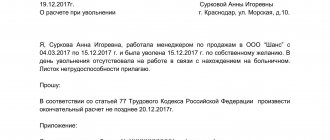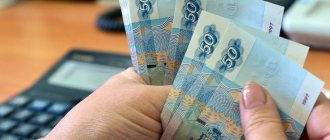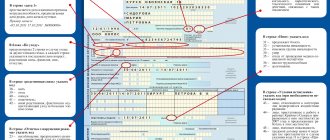In 2021, travel certificates will not be issued; they were canceled several years ago. Now the actual length of stay on a business trip is determined on the basis of travel documents.
To send an employee on a business trip, it is enough to issue an order from the director and prepare an advance report on the business trip, which will confirm the start and end dates of the business trip.
But the organization has the right to issue travel certificates at its own discretion. You can develop the form yourself or use the previously valid T-10 form.
Types of travel expenses
Travel expenses are a separate type of expense for an institution that arises when an employee is sent on a business trip. By law, regardless of the purpose of the business trip, the employer is obliged to compensate the employee for the expenses incurred. The composition of expenses that are subject to reimbursement is defined in Art. 168 Labor Code of the Russian Federation:
- travel expenses;
- expenses for renting residential premises;
- additional expenses associated with living outside the place of permanent residence (per diem);
- other expenses incurred by the employee for official purposes with the permission or knowledge of the employer.
Travel expenses are paid to the employee in advance (clause 10 of the Decree of the Government of the Russian Federation of October 13, 2008 No. 749 (hereinafter Resolution No. 749)).
How to take into account per diem expenses when paying taxes?
The employer does not withhold personal income tax on daily allowances that do not exceed the limit, and also does not reflect them in tax returns.
On funds exceeding the limits, it is necessary to calculate tax and contributions to the Pension Fund and the Social Insurance Fund (with the exception of contributions for injuries). They are subject to reflection in forms 2-NDFL and 6-NDFL.
Table 2. Taxation of daily allowances in excess of the norm in 2020:
Calculations must be made at the end of the month the employee submits an advance report based on the results of the business trip. All supporting expenses incurred in connection with the performance of the official assignment are attached to it. This:
- any document confirming the rental of residential premises (hotel bill, payment receipts, agreement with a private person), which must indicate the number of days of stay in this premises and the cost of one day of accommodation;
- travel documents issued to a business traveler along the route to the destination and back (tickets, coupons, etc.);
- other documents confirming expenses incurred in connection with the trip.
According to the letter of the Federal Tax Service dated December 3, 2009 No. 3-2-09/362, the expenditure of daily allowances does not need to be documented.
Amounts of daily allowance paid in excess of the established limit are subject to personal income tax and contributions. The employer is obliged to calculate them and pay them to the budget. If this requirement is not met, the tax authority applies penalties in the amount of 20% of the lost amount of tax and contributions (Articles 122, 123 of the Tax Code of the Russian Federation).
Daily allowance
According to clause 11 of Resolution No. 749, daily allowances are payable:
- for each day the employee is on a business trip;
- for business trip days that fall on weekends and holidays;
- for days on the road and days of forced stopover;
- for sick days if the employee gets sick during a business trip.
There are no special requirements or restrictions on spending daily allowances.
According to clause 1 of the Decree of the Government of the Russian Federation dated October 2, 2002 No. 729, the daily allowance rate for each day of business trip for public sector institutions is 100 rubles.
However, there are standards under which daily allowances are not recognized as income (clause 1 of Article 217 of the Tax Code of the Russian Federation). The daily allowance rate that is not subject to personal income tax and insurance premiums on the territory of the Russian Federation is 700 rubles, on the territory of a foreign state - 2,500 rubles.
Example.
The employees were sent on a business trip for 4 days within the Russian Federation. An employee is entitled to a daily allowance of 1,000 rubles for each day of business travel.
Thus, in total the employee is entitled to 4,000 rubles. (4 days x 1,000 rubles). Of which: RUB 2,800. are not income (4 for x 700 rub.), 1,200 rub. are subject to the calculation of personal income tax and insurance premiums.
If an employee is sent on a one-day business trip, the employer is not required to compensate the daily allowance. Daily allowances are not paid if the employee has the opportunity to return to his place of permanent residence every day.
Duration of business trips
2.1.
The duration of a business trip for an employee (workers) is determined by the head of the institution (other authorized person), and in relation to the head of the institution - by the founder, based on the goals and objectives that the employee (workers) have to solve. 2.2. Extension of the business trip of an employee (workers) is allowed in case of production necessity on the basis of an order from the head of the institution (other authorized person).
Cancellation of an upcoming business trip for reasons beyond the employee’s control is also formalized by order.
2.3. The early return of an employee from a business trip due to various reasons is agreed upon with the immediate supervisor.
Payment for travel expenses is made for the time you are actually on a business trip.
2.4. The actual time of stay of the employee (workers) at the place of business trip is determined by the marks in the travel certificate about the day of arrival at the place of business trip and the day of departure from the place of business trip, including weekends and holidays that fall during the business trip.
If an employee is sent to different locations, notes about the day of arrival and day of departure are made at each location.
The notes on the travel certificate about the arrival and departure of the employee are certified by the seal that this or that institution usually uses in its business activities to certify the signature of the corresponding official.
2.5. The day of departure of an employee on a business trip is the day of departure of a train, departure of an airplane, departure of a bus, or other vehicle from the place of permanent work of the business traveler, and the day of arrival is the day of arrival of the specified vehicle at the place of permanent work.
When a vehicle is sent before 24.00 inclusive, the day of departure for a business trip is considered the current day, and from 00.00 and later – the next day.
If a station, pier, or airport is located outside a populated area, the time required to travel to the station, pier, or airport is taken into account. The day the employee arrives at his place of permanent work is determined similarly. The time of departure and time of arrival of the vehicle is determined by local time.
2.6. The travel time is determined according to the existing vehicle schedule, including the delay time of the business traveler on the route due to reasons beyond his control and the time for transfers.
The fact that a business traveler is delayed en route for reasons beyond his control must be certified with a stamp and signature of an official of the station, station, pier, or airport.
2.7. Employees on a business trip are subject to the working hours and rest hours of the organizations to which they are posted. In return for rest days not used during a business trip, other rest days upon return from a business trip are not provided.
If an employee is specially sent to work on weekends or holidays, compensation for work on these days is made in accordance with current legislation.
The issue of reporting to work on the day of departure and on the day of arrival from a business trip, as well as the issue of providing another day of rest if an employee leaves for a business trip by order of the manager on a day off, is resolved by agreement with the immediate supervisor.
2.8. In case of temporary disability of employees during a business trip, the days of temporary disability are not counted towards the duration of the business trip. The fact of temporary disability, which caused the employee’s untimely arrival from a business trip, must be certified in the prescribed manner (sick leave issued). If an employee is temporarily incapacitated during a business trip, he is paid daily allowance and reimbursed for the cost of renting living quarters (with the exception of the time when the employee was treated in a hospital) for the entire time until he is unable, for health reasons, to begin performing the work assigned to him official assignment or return to your permanent place of residence.
Directions
The employer compensates the travel costs of a posted employee in the following cases:
- travel to and from the place of business;
- movement between different settlements within a business trip;
- movement to the place of business from the airport, station, pier and back if they are located outside the populated area.
An employee sent on a business trip can use any type of transport except taxi. But the institution may establish restrictions or recommendations in local regulations on the choice of transport.
Conclusion
A business trip is the performance by an employee of work duties outside the usual workplace.
To send an employee on a business trip, an order must be issued. The financial results of the trip are summed up on the basis of the advance report.
All economically justified and documented travel expenses reduce the taxable base for income tax and similar mandatory payments. If VAT is included in the costs, the employer can deduct it.
Some travel payments are subject to personal income tax and insurance contributions. We are talking, first of all, about excess daily allowances and undocumented housing costs.
Reporting for travel expenses
Upon returning from a business trip, the employee must account for the advance of funds received or receive compensation for expenses incurred. An advance report (form according to OKUD 0504505) serves as such a document. The report is provided within three days after returning from a business trip. The period for provision can also be the day on which the advance was issued.
The employee must also provide the following documents:
- for travel - supporting documents are tickets, checks, receipts, electronic receipts;
- for rental of residential premises - a receipt from a hotel or a rental agreement for residential premises;
- for other expenses - checks, sales receipts, receipts, invoices and other documents;
- daily allowance - no special document is required; you can confirm the number of days using tickets.
The procedure for paying travel allowances and reporting on them
Money for a business trip is given to the employee before the start of the business trip at the cash desk, or transferred to the card. When traveling abroad, daily allowance can be paid either in foreign currency or in rubles, recalculated at the exchange rate on the day of issue.
The amount intended to pay for travel, housing, food and other expenses of the employee, agreed upon with the employer, is registered as accountable funds. Upon return, the employee must report on them within three working days. To do this, you need to fill out an advance report and attach documents confirming these expenses. The employee must return the money that remains unspent to the employer (clause 26 of the Business Travel Regulations).
Expenses in foreign currency when traveling abroad must be converted into rubles:
- if the employee paid from a ruble card - at the rate set by the bank on the date the money was written off (letter of the Ministry of Finance of Russia dated January 22, 2016 No. 03-03-06/1/2318; see “The Ministry of Finance reminded how to determine the exchange rate in order to account for the costs of payment for accommodation on a business trip abroad");
- if an employee bought currency at an exchange office - at the rate indicated in the documents for the purchase of currency (letter of the Ministry of Finance of Russia dated June 15, 2011 No. 03-03-06/1/347; see “Ministry of Finance: the rate of currency purchased by an employee on a business trip abroad is determined according to the documents for its purchase");
- if the employee did not submit the primary document for currency exchange - at the rate of the Central Bank of the Russian Federation in effect on the date of issuing the accountable amount in rubles to the employee (letter of the Ministry of Finance of Russia dated 09/03/15 No. 03-03-07/50836; see “How to convert currency into rubles, if the posted worker has not submitted documents for its purchase").
An employee does not have to report on per diem, so per diem does not need to be registered as accountable funds. They should simply be given to the employee.
ATTENTION . Payment in lieu of daily allowance for a one-day business trip must be transferred to the employee for reporting along with money for travel and other travel expenses. Subsequently, the employee is obliged to report on such payment by presenting supporting documents to the accounting department.
Automatically calculate the salary of a posted worker according to current rules Calculate for free
Reflection in accounting
Check
Travel expenses must be reflected in the following accounting accounts (Order of the Ministry of Finance dated 06/08/2018 No. 132n):
- daily allowances - subaccount 0 208 12 000 “Settlements with accountable persons for other non-social payments to personnel in cash”;
- compensation for the use of personal transport on a business trip - subaccount 0 208 22 00 “Settlements with accountable persons for payment for transport services”;
- accommodation and travel - subaccount 0 208 26 000 “Settlements with accountable persons for payment for other works and services.”
KOSGU
Account 0 208 00 000 “Settlements with accountable persons” is used with the indication of KOSGU (clause 21 of Instruction No. 157n, clauses 13.6, 14.6 Order of the Ministry of Finance of the Russian Federation dated November 29, 2021 N 209n)
- 567 “Increase in other receivables for settlements with individuals”;
- 667 “Reduction of other receivables for settlements with individuals.”
To reflect in the accounting records of a state institution, the following subarticles of KOSGU are applied:
- 212 (“Other non-social payments to staff in cash”) – daily allowance;
- 222 (“Transport services”) – compensation for the use of personal transport;
- 226 (“Other work, services”) – payment for travel, rental of living quarters, and other expenses.
KVR
In terms of expense type codes, the following apply:
- KVR 112 - budgetary institutions;
- KVR 122 - state (municipal) bodies;
- KVR 134 - military personnel and employees with special ranks;
- KVR 142 - extra-budgetary funds.
Postings
In the accounting of a government agency, the following entries are used, indicated in table 1.
Table 1. Entries when accounting for travel allowances
| Contents of operation | Debit | Credit |
| Withdrawal of funds from the cash register: | ||
| Daily allowance | 0 208 12 567 | 0 201 34 610 |
| For the use of personal transport | 0 208 22 567 | 0 201 34 610 |
| For travel and rental accommodation | 0 208 26 567 | 0 201 34 610 |
| Transferring funds to a bank salary card | ||
| Daily allowance | 0 208 12 567 | 1 305 04 212 (0 201 11 610) |
| For the use of personal transport | 0 208 22 567 | 1 305 04 222 (0 201 11 610) |
| For travel and rental accommodation | 0 208 26 567 | 1 305 04 226 (0 201 11 610) |
| Expenses based on the advance report: | ||
| Daily allowance | 0 401 20 112 (0 109 XX 112) | 0 208 12 567 |
| For the use of personal transport | 0 401 20 222 (0 109 XX 222) | 0 208 12 567 |
| Travel and rental of residential premises are reflected in the accounting based on the advance report | 0 401 20 226 (0 109 XX 226) | 0 208 12 567 |
VAT
The costs of accepting VAT include expenses for travel and rental of residential premises (clause 7 of Article 171 of the Tax Code of Russia).
In government agencies, when accepting VAT, the following features must be taken into account:
- government institutions - input VAT is not deductible, it is taken into account in the cost of services (clause 2 of article 146 of the Tax Code of the Russian Federation);
- budgetary and autonomous institutions - if expenses are incurred at the expense of income-generating activities and are taken into account by the institution when calculating profit tax, then input VAT is accepted for deduction (clause 7 of Article 171 of the Tax Code of the Russian Federation).
Document flow when sending employees on business trips
3.1.
The basis for sending employees on a business trip is an order from the head of the institution (another person authorized by the appropriate power of attorney). 3.2. Responsibility for the selection and training of employees sent on business trips, including group trips, lies with the heads of structural units (immediate supervisors of employees). When deciding to send a subordinate employee on a business trip, the manager evaluates the employee’s professional training to solve the assigned tasks, his ability to successfully carry out official assignments and adequately represent the interests of the organization.
3.3. HR department taking into account Art. 203, 259, 264 and 268 of the Labor Code of the Russian Federation approves the order to send an employee (workers) on a business trip.
3.4. The head of the structural unit (the employee’s immediate supervisor) notifies the employee about his assignment on a business trip and provides detailed instructions to the employee.
3.5. The job assignment (unified form T-10a) is drawn up and approved by the head of the department.
3.6. The HR department prepares an order and travel certificate for sending an employee on a business trip (unified form T-9 or T-9a).
3.7. The secretary presents the order and travel certificate to the head of the enterprise for signature.
3.8. A travel certificate (unified form T-10) is issued in one copy on the basis of an approved order and submitted for signature to the head of the institution (other authorized person).
3.9. A travel certificate signed by the head of the institution (another authorized person) and certified by the seal of the organization is issued to the employee on the eve of the planned departure on a business trip.
3.10. A cash advance before the employee’s departure on a business trip is issued to the employee three working days before the employee’s departure on a business trip within the limits of the amounts due for travel, expenses for renting accommodation and daily allowances, based on the travel certificate and order.
3.11. An advance report (f. 0504049), filled out with a list of primary documents confirming expenses incurred (transport documents, receipts, cash register receipts, bills, invoices, etc.), the employee must submit to the accounting department within three working days after returning from a business trip.
The employee shall attach the following to the advance report:
– travel certificate issued in accordance with the established procedure;
– official assignment and report on its implementation;
– all supporting primary documents, numbered in the order they were recorded in the report.
Expenses for travel by air are confirmed by an itinerary receipt, since according to Order of the Ministry of Transport of the Russian Federation dated November 8, 2006 No. 134 “On establishing the form of an electronic passenger ticket and baggage receipt in civil aviation,” an electronic passenger ticket and baggage receipt in civil aviation is a document used for certificate of the contract for the carriage of passengers and baggage, in which information on the air carriage of passengers and baggage is presented in electronic digital form. A boarding pass is not required to verify air travel expenses.
Living expenses can be confirmed by the employee not only with Form 3G, but also with other documents (a residential lease agreement, etc.).
3.12. The remainder of the unused advance payment is handed over by the employee to the cash desk using a cash receipt order (f. 0310001) within three working days from the date of approval of the advance report. And if an overexpenditure is identified according to the advance report, then it is paid to the employee from the cash register using an expense cash order (f. 0310002).









